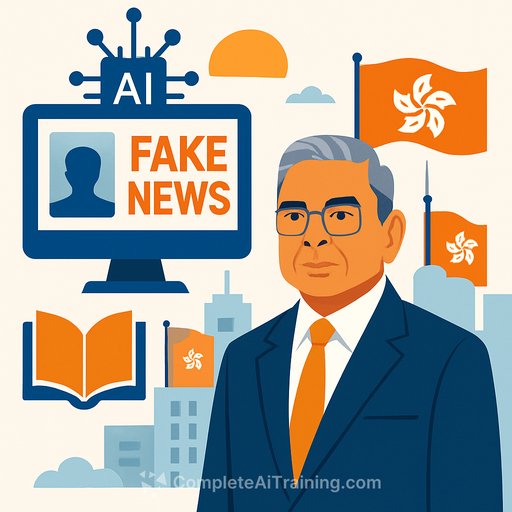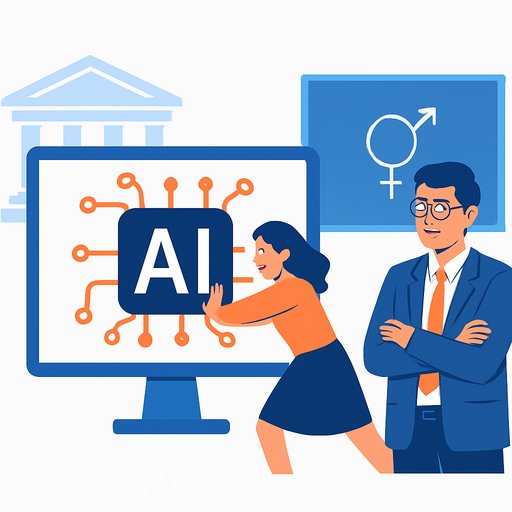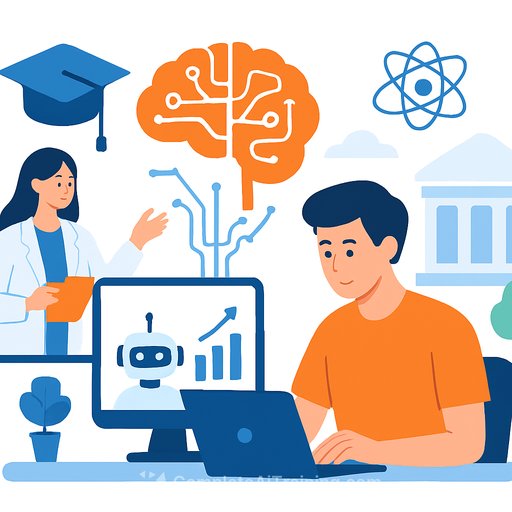AI misinformation is rising: Kishore Mahbubani's message to educators in Hong Kong
Singaporean diplomat and former UN Security Council president Professor Kishore Mahbubani warned that artificial intelligence is accelerating a flood of fake information, urging educators to fortify integrity across teaching and assessment. He delivered the message while receiving an honorary doctorate of humanities from the Education University of Hong Kong.
"While generative AI has great potential, it is also posing many issues in the field of education, including disseminating false information and potentially negatively impacting students' cognitive development."
He cautioned that it is getting harder to separate fact from fabrication amid fake videos, images, and news. "Belief in science and medicine is falling even further - especially in the West, where we are seeing returns of diseases that have long been controlled with vaccines."
"In this difficult climate, education is more threatened than ever, and also more needed than ever."
Why this matters for educators
AI makes content creation cheap, fast, and convincing-exactly what misinformation needs. Schools and universities must raise the bar on verification, redesign assessments that reward thinking over copy, and build students' capacity to question, source, and cite with precision.
For policy and classroom practice, educators can draw on independent guidance such as UNESCO's recommendations on generative AI in education and public health context from the WHO's work on infodemic management.
Practical guardrails for schools and universities
- Clarify AI use: Publish a short, plain-language policy that defines acceptable use, required disclosure, and citation of AI assistance. Add examples.
- Assess the process: Emphasize drafts, version history, planning notes, and brief oral defenses. Mix in supervised, in-class writing.
- Verification drills: Teach students a simple protocol: cross-check with three reputable sources, run reverse image/video checks, and look for content credentials (e.g., C2PA) before sharing.
- Task design: Use scenario-based prompts tied to local data, personal reflection with evidence, and projects that require unique artifacts or fieldwork.
- AI and media literacy: Build short modules on bias, hallucinations, source credibility, and citation hygiene. Rotate weekly "myth checks" tied to course topics.
- Staff development: Hold 30-minute clinics: evaluating AI outputs, prompt clarity, data privacy, and student guidance. Maintain a vetted tool list and a "do-not-use" list.
- Fair conduct process: For suspected synthetic or misattributed work, use a conversation-first review, collect artifacts, and apply consistent rubrics before any penalty.
- Community messaging: Share the policy with students and families. Celebrate good citation and source work the same way you celebrate grades.
If you are building faculty skills or course materials around AI use, explore practical options by job role here: Complete AI Training: Courses by Job.
Other honorees
Professor Justin Yifu Lin, former World Bank chief economist and senior vice-president (2008-2012) and now dean of Peking University's Institute of New Structural Economics, was recognized for counsel that has helped steer China's economic policies and growth path. He received an honorary doctorate in social sciences.
Venerable Kuan Yun, president of the Hong Kong Buddhist Association and abbot of Western Monastery, accepted an honorary fellowship, noting it as an acknowledgment of the city's Buddhist community and its values of compassion and wisdom.
Additional honorary doctorates went to Professor Lawrence Lau Juen-yee, economist and former Chinese University of Hong Kong vice-chancellor; Dr Michael Mann, climate scientist at the University of Pennsylvania; and Professor James Gross, psychology scholar from Stanford University.
Education University of Hong Kong president John Lee Chi-kin commended the recipients for service across education, economic development, diplomacy, environmental stewardship, and community work.
The bigger message
Mahbubani has argued that strategic competition suffers when leaders default to a zero-sum mindset. His appeal to educators is clear: protect truth through better design, better habits, and better incentives. Build students who can judge evidence and communicate it with integrity.
Set the standard in your classroom. Make truthful work the easiest work to produce-and the only work that earns credit.
Your membership also unlocks:






